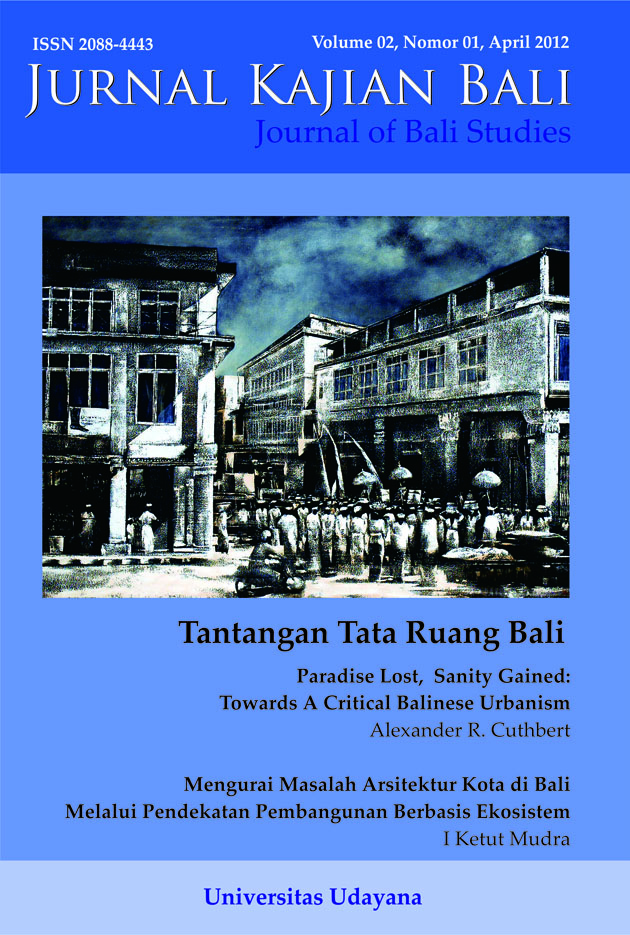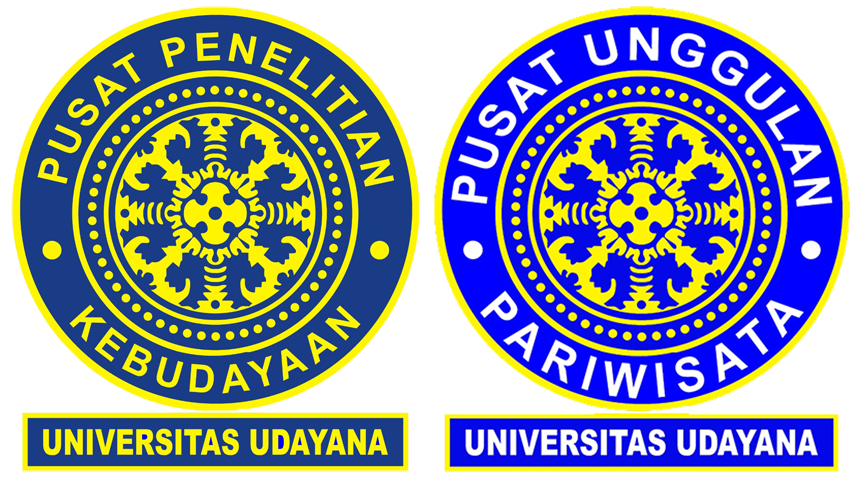Mengurai Masalah Arsitektur Kota di Bali melalui Pendekatan Pembangunan Berbasis Ekosistem
Abstract
Abstract
Ecology and ecosystem are two profound terminologies nowadays which seem to be a new conception. But if we look at it more closely, for our dependency on the environment we were actually born as part of an ecosystem. For Balinese Hindu community, efforts to save our environment and ecology are no longer seen as a mere conception, but have been part of daily life. Hindus principles, philosophies, Balinese traditional architectural principles, as well as awig-awig of a desa pekraman make it a compulsory for its members to always look after and live in harmony with nature.The luring tourist industry in the crowding visit of both local and international tourists to Bali has overlooked cultural legacies of our ancestors. This can be seen by rampant exploitation activities as well as conversion of land use. In one hand, spatial plan is overlooked, and money is preserved on the other. Kota-desa pattern which are all derived from cosmological and communal values, are marginalized. In consequence, the urban architecture losses its character and its identity. All are done on behalf of growth (mainly of the tourist development).Ecologically friendly development concept emerges by combining technical and community paradigms. This merger results in a technico-community development approach that promotes public participation at all levels, starting from planning phase, execution and monitoring phases. Technical paradigm is required in predicting needs imposed by both nature and Balinese community, in rational, objective, accurate, and free of interest manners. Conflicts pertaining to the adat, socio-culture, beliefs system, religion, and psychology that cost
The emergence of both paradigms is expected to maintain a balance in an ecosystem. Development of both urban and rural areas should have considered local genius. This also means that identity of Bali’s urban and rural areas should be developed based on values and approaches exist at various desa pekraman of this island.
Downloads
Keywords

This work is licensed under a Creative Commons Attribution 4.0 International License.



















